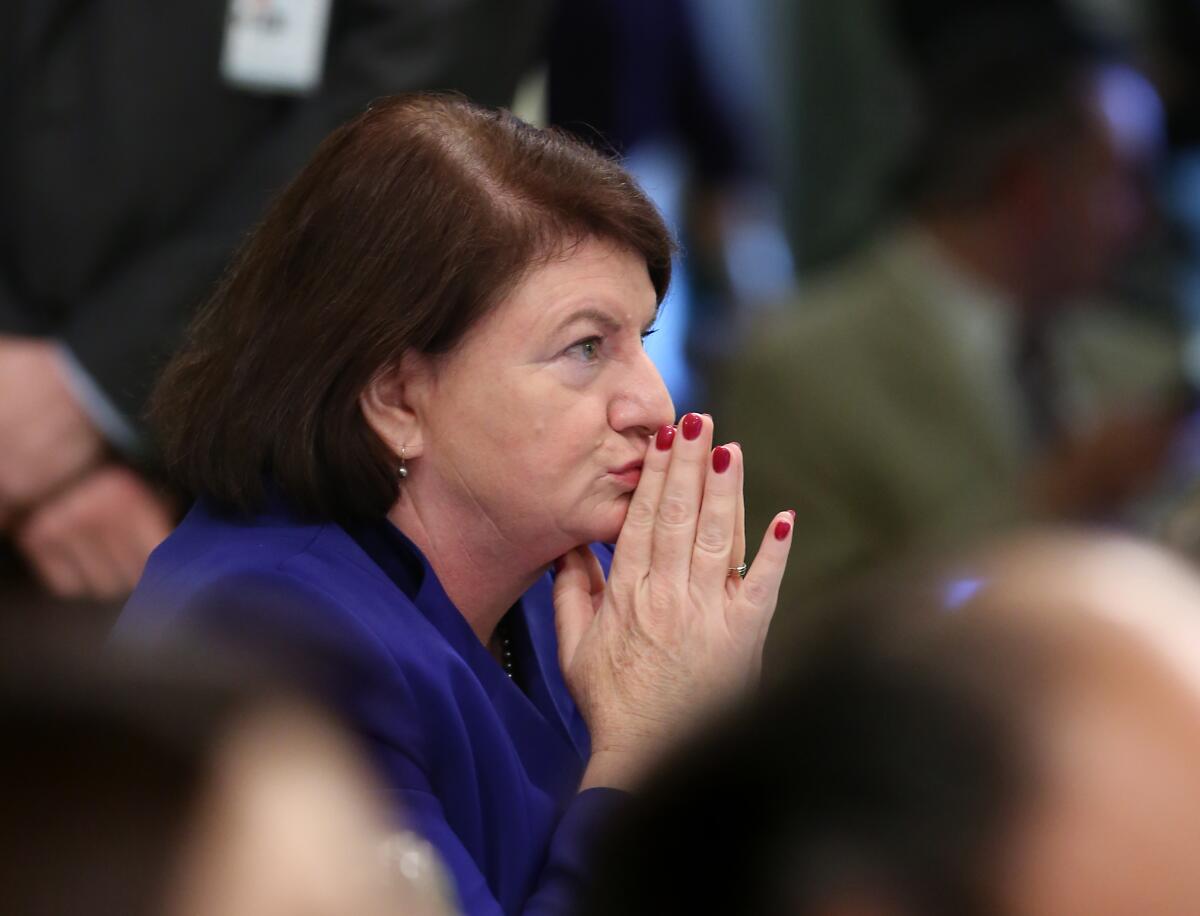The absolute wrong way to solve California’s affordable housing crisis

- Share via
In recent years, a group of California lawmakers has been pushing for legislation to override locally approved zoning rules and permit denser development in residential neighborhoods. At the moment, a bill is rushing toward passage in the state Legislature that would dramatically and undemocratically rewrite land-use rules in California.
The bill is SB 9, written by Senate President Pro Tem Toni Atkins (D-San Diego). If approved, it would effectively eliminate single-family zoning in wide swaths of California’s cities. Under its provisions, the owners of parcels currently zoned for single-family use would be allowed by right (subject to very limited environmental and other exceptions) to split their lots in two — and then to have up to two residential units on each lot.
In other words, a parcel currently zoned for only one family could soon have four families squeezed together.
These changes in the rules would be imposed on local governments but would not provide true solutions to the state’s affordable housing crisis. That’s why a bipartisan group of 120 locally elected officials from 48 cities across the state — including not just wealthy communities but also low- and middle-income communities — have signed on to this article, agreeing that adding density to neighborhoods in such a broad and haphazard manner lowers quality of life for all communities.
SB 9 has passed the state Senate and is awaiting a vote in the Assembly.
One problem with the bill is that overriding local zoning cannot be Sacramento’s lone scheme for achieving affordability — because, unfortunately, it will not have the intended outcome. Affordable housing development is only attractive where land values are economical and adequate financial subsidies are available. Upzoning of the sort proposed does not produce more affordable housing. Rather, it increases the underlying land’s value, making new construction unnecessarily more expensive and, over time, raising values and rents throughout neighborhoods.
In 2017, census data suggested that there were twice as many vacant units in the city of Los Angeles as unhoused individuals. If those in need had the means to pay for those units, or if the units were accessible to existing public programs, low-income families seeking housing could have found it more rapidly.
The state should allow SB 329, which was signed into law in 2019, to work. It bans landlords from discriminating against renters who seek apartments using Section 8 or other housing assistance vouchers. In addition, California could house people more quickly by creating its own state housing voucher program.
Another problem with the SB 9 approach is that many cities face ”carrying capacity limits” that must be considered before density is increased. If a community’s population is going to grow, as it would under SB 9, are there enough parks? Can the schools support the increase in students? You can’t just make a neighborhood more crowded without considering sewer limitations, traffic conditions and water supply.
Proponents of SB 9 argue that density will allow families to live in “resource-rich neighborhoods” without guaranteeing every community is, or will become, resource-rich. We must address historical inequities to ensure all neighborhoods have sufficient ongoing public and private investments.
Additionally, the proposed eradication of single-family neighborhoods and the undermining of local control over zoning are attacks on democracy. California currently requires citizen participation in the adoption of general plans and community changes in zoning rules. Overriding those policies undermines existing state mandates. The barrage of new housing legislation coming down from Sacramento in recent years compromises cities’ ability to meet low-income-housing requirements and complicates the job of both local planners and developers, creating confusion and delays.
Municipal planning departments are becoming administrators of state policy instead of being allowed to guide their jurisdictions into sustainable and resilient futures. Local inclusionary zoning and density incentives are undermined by state legislation that adds density without affordability requirements. Cities have yet to fully comprehend the impacts of last year’s three bills regulating accessory dwelling units. Municipalities need time to adjust, reset and thoughtfully adopt changes. They do not need a tsunami of statewide bills to “help.”
The state would do better to develop programs that provide more resources to planning departments. Right now, for example, cities may want to prioritize redeveloping their commercial districts, many of which have been devastated by COVID-19. Local entities should have the option to control their own zoning and set their own priorities.
Finally, overriding local zoning with by-right development can inadvertently increase greenhouse gas emissions without also acknowledging the dire need for broad infrastructure investment that could help guide communities toward zero-emission mobility. If public transit is the strategy to bring us to zero emissions, unfortunately it doesn’t currently work or exist in L.A.’s South Bay or many suburban parts of the state.
California residents should demand that Sacramento abandon the one-size-fits-all strategy embodied in SB 9, which would benefit developers, hurt homeowners and renters, and not necessarily facilitate the production of low-income housing. The state could better address the affordability crisis by helping local communities create reliable and fast transportation options and collaborating on regionally focused solutions that aid those in greatest need. SB 9 falls short of accomplishing those goals and only furthers the lack of trust in state government to be a partner with local jurisdictions in solving real problems.
Christian Horvath is a City Council member in Redondo Beach. Olivia Valentine is mayor pro tem of Hawthorne. Drew Boyles, the chair of the South Bay Cities Council of Governments, is mayor of El Segundo. A full list of signatories is at SouthBayCities.org.
More to Read
A cure for the common opinion
Get thought-provoking perspectives with our weekly newsletter.
You may occasionally receive promotional content from the Los Angeles Times.






